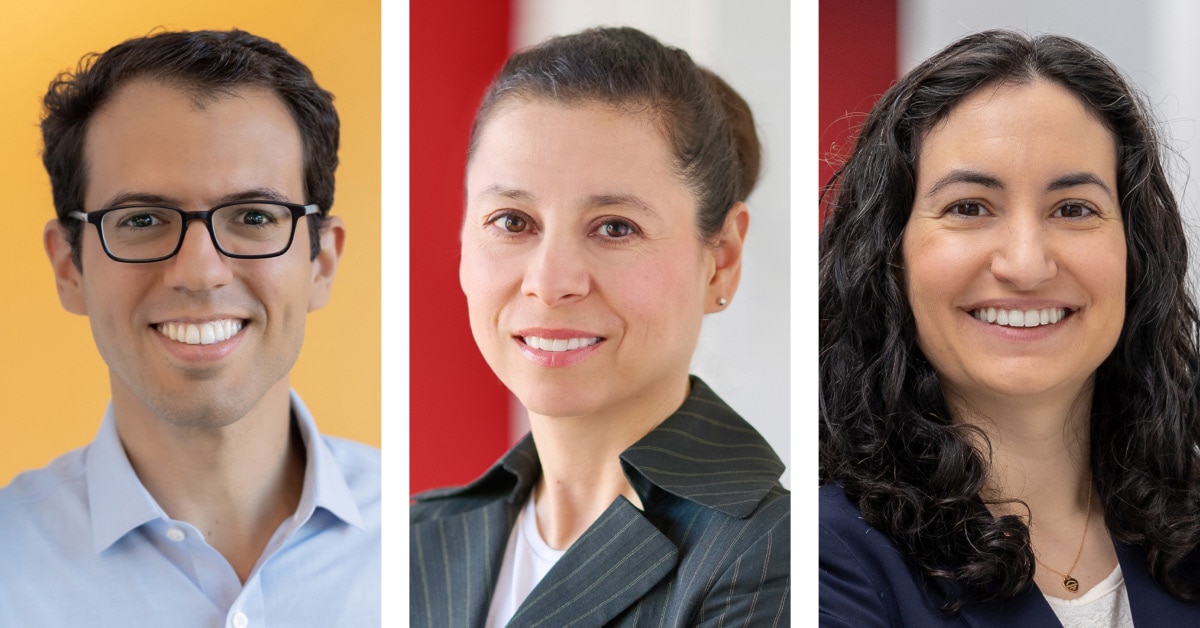Research summary
Inside the minds of equity income fund investors
August 26, 2025
Equity income funds are popular with many investors. What’s their draw? A central finding of recently published research co-authored by Vanguard experts is counterintuitive: Most equity income fund owners invest for reasons other than a desire for income.
Portfolio manager Sharon Hill noticed a pattern while overseeing dividend distributions from Vanguard Equity Income Fund.
“We call the fund Equity Income, and we focus on stocks that offer above-average dividend yields,” said Hill, head of the Global & Income Active Equity team within Vanguard Quantitative Equity Group, our in-house active equity manager. “But on the days the fund distributes dividends, we generally don’t need to raise much capital. Most of the investors reinvest their dividends in the fund.”
To gain insight into investors’ treatment of dividends, Hill reached out to Paulo Costa, a senior behavioral economist with Vanguard Investment Strategy Group. Costa found that Vanguard’s anonymized client data supported Hill’s observation. Across a range of equity income funds, most investors automatically reinvested their dividends.
“We thought, ‘Why would investors own an income fund if they didn’t want the income?’” Hill said. “So we decided to ask them.”
Equity income fund investors often seek diversification
Hill and Costa partnered with Meir Statman, a professor of behavioral finance at Santa Clara University, to design a survey of investors in Vanguard’s equity income funds. Equity income funds generally seek above-average levels of current income and long-term capital appreciation by investing primarily in dividend-paying stocks. For comparison, the survey also queried investors in “regular,” or non-income-oriented, Vanguard equity funds. More than 5,000 investors responded to the survey.
The results showed that across Vanguard’s five equity income funds—those with the terms “high dividend” or “income” in their names—only 12% of investors said they needed the income produced by the funds. More than 80% said they reinvested the dividends. Interestingly, equity income fund investors were no more likely to withdraw their dividends than investors in other equity funds.
Investors cited diversification as their top reason for owning equity income funds. “Diversification can mean different things to different people,” Hill said. “For example, some investors may view equity income funds as diversified, core portfolio holdings. Others may view them as diversifiers for their more aggressive, growth-oriented holdings.”
Investors’ top-stated reasons for owning dividend funds

Source: Meir Statman, Paulo Costa, and Sharon Hill, The Dividend Reinvestment Puzzle: Solution by a Survey, The Journal of Wealth Management, Summer 2025.
Dividends comfort investors
About half of investors said they own equity income funds because they prefer to invest in dividend-paying companies. Many of these investors said they believe that the stocks of companies paying high dividend rates have higher returns and lower volatility than other stocks, and that such companies care more about their investors than companies paying low dividend rates.
“These results suggest investors derive emotional benefit from investing in dividend-paying stocks, in addition to the more utilitarian, financial benefits,” Costa said.
When investors were asked why they reinvested their dividends, about 80% cited a preference for compounding returns. About 70% said they reinvested because they didn’t need the dividends for immediate spending. “Many dividend reinvestors may be positioning themselves to receive income at a later date, to meet future spending needs,” Costa said.
Investors’ top-stated reasons for reinvesting dividends in taxable accounts

Source: Meir Statman, Paulo Costa, and Sharon Hill, The Dividend Reinvestment Puzzle: Solution by a Survey, The Journal of Wealth Management, Summer 2025.
In theory, in the absence of tax and trading costs, investors shouldn’t care whether they receive their returns in the form of dividends or price appreciation. That’s because a dividend payment reduces a company’s value—and, all else equal, its share price—by the amount of the payment.
Survey responses also highlighted the limited effect of the “self-control theory” of dividends, which suggests that investors prefer dividends because they help them set guardrails on their spending. Only 23% of those who withdraw dividends said that dividend funds helped them manage their spending.
Equity income funds are not a replacement for bonds
About 70% of respondents said interest rates had no effect on how they feel about stocks or funds that pay dividends. This finding suggests that investors don’t view dividend stocks as a suitable replacement for bonds, a strategy that reportedly became more popular when bond yields were near all-time lows.
“Investors’ views on this topic appear consistent with ours,” Costa said. “Stocks and bonds are subject to different risks and serve different purposes in a portfolio. So, it may not be beneficial for investors to change their asset mixes in response to macroeconomic events like interest rate changes.”
Hill said the survey findings are a reminder that equity income investing isn’t a one-size-fits-all proposition.
“Different strategies can work well for different needs. Whether an investor needs income and/or simply values the attributes of higher-dividend-paying companies, an active fund that seeks high-quality companies with stable dividend yields may be suitable.”
The full research paper, The Dividend Reinvestment Puzzle: Solution by a Survey, appeared in the summer 2025 edition of The Journal of Wealth Management.
Notes:
For more information about Vanguard funds, visit vanguard.com to obtain a prospectus or, if available, a summary prospectus. Investment objectives, risks, charges, expenses, and other important information are contained in the prospectus; read and consider it carefully before investing.
All investing is subject to risk, including the possible loss of the money you invest. Diversification does not ensure a profit or protect against a loss.
Contributors

Sharon Hill

